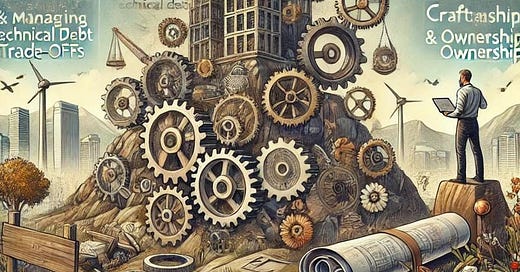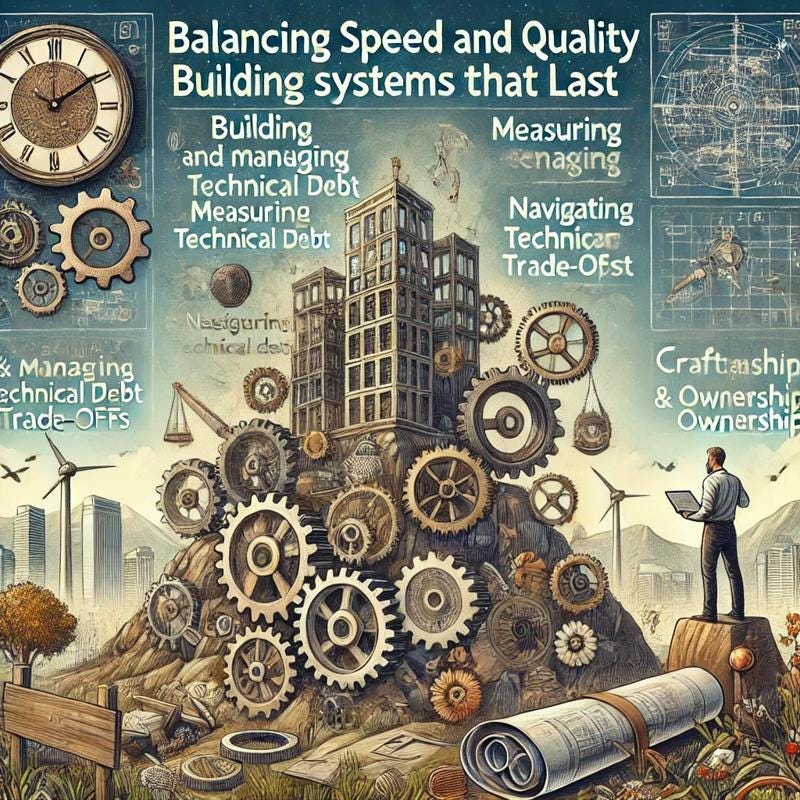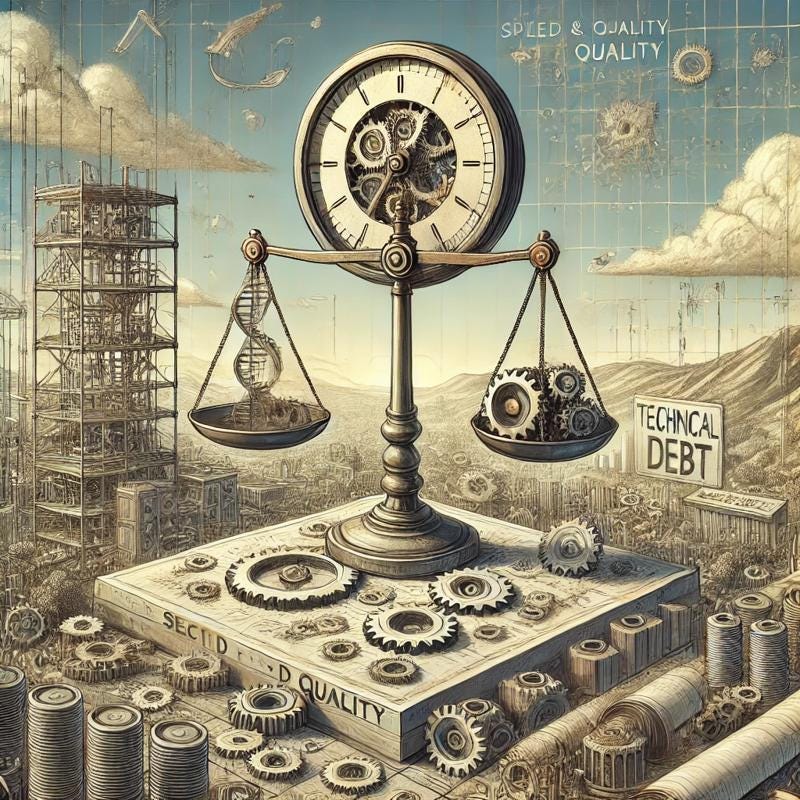Beyond Code: The Pursuit of Technical Excellence
In the world of software engineering, technical excellence is often misunderstood. Many see it as simply writing perfect code, adopting the newest tech stack, or achieving flawless execution. But these views miss the mark. For example, a team might focus on clean code without considering its relevance to the business outcome, or chase the latest tools at the cost of stability. True technical excellence is about making deliberate choices — balancing innovation with practicality, and ensuring that systems are well-built, impactful, and sustainable.
So, what does it take to achieve technical excellence?
Great engineers recognize that speed and quality aren’t at odds — they complement each other when approached thoughtfully. For example, a team might prioritize delivering an MVP quickly but still apply solid engineering practices, such as writing modular, testable code. This allows them to iterate rapidly without accumulating excessive technical debt, ensuring that early speed doesn’t compromise long-term stability. When speed and quality align, teams can move fast while laying a strong foundation for future growth.
Technical excellence goes beyond writing good code — it involves building systems that last, navigating trade-offs thoughtfully, and owning outcomes beyond the immediate task. It requires a mindset that values long-term sustainability, craftsmanship, and the ability to adapt when the constraints of reality come into play.
This series will explore the core pillars of technical excellence:
Balancing Speed and Quality: Learn to deliver results quickly without sacrificing maintainability or creating chaos.
Building Systems That Last: Explore how to design systems with maintainability, scalability, and resilience in mind, ensuring they stand the test of time.
Measuring and Managing Technical Debt: Understand how to identify, quantify, and address technical debt so it doesn’t cripple your team in the future.
Navigating Trade-offs: Gain strategies for making thoughtful decisions when you’re working with limited time, resources, or competing priorities.
Craftsmanship and Ownership: Discover the importance of owning outcomes, prioritizing engineering quality, and building with a sense of pride and accountability.
Each article will provide actionable advice, real-world examples, and practical frameworks — like strategies for managing technical debt, workflows for balancing speed and quality, and case studies of scalable system design — to help you build systems that stand the test of time while delivering value to your team and organization.
Technical excellence isn’t a destination — it’s a journey. Along the way, you’ll sharpen your craft, drive meaningful impact, and inspire those around you to aim higher. By embracing technical excellence, you won’t just build better systems — you’ll become a better engineer. Let’s get started.
Follow me here or on X at The Effective Engineer to keep up with the series





